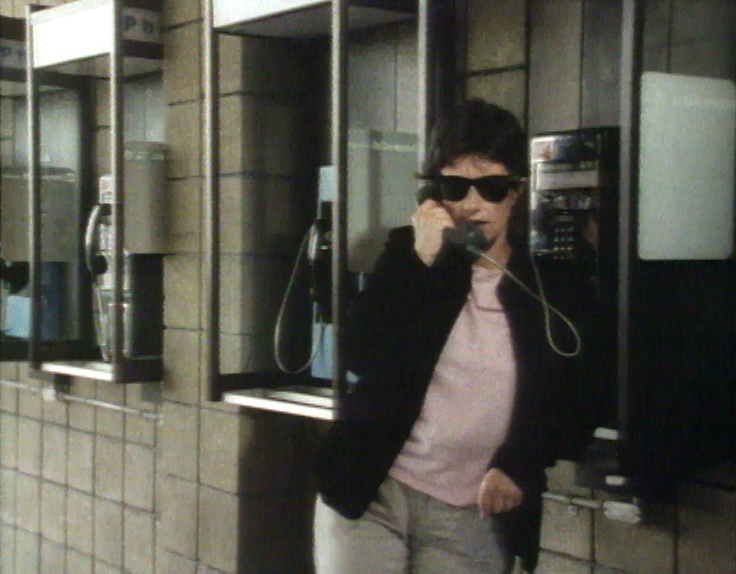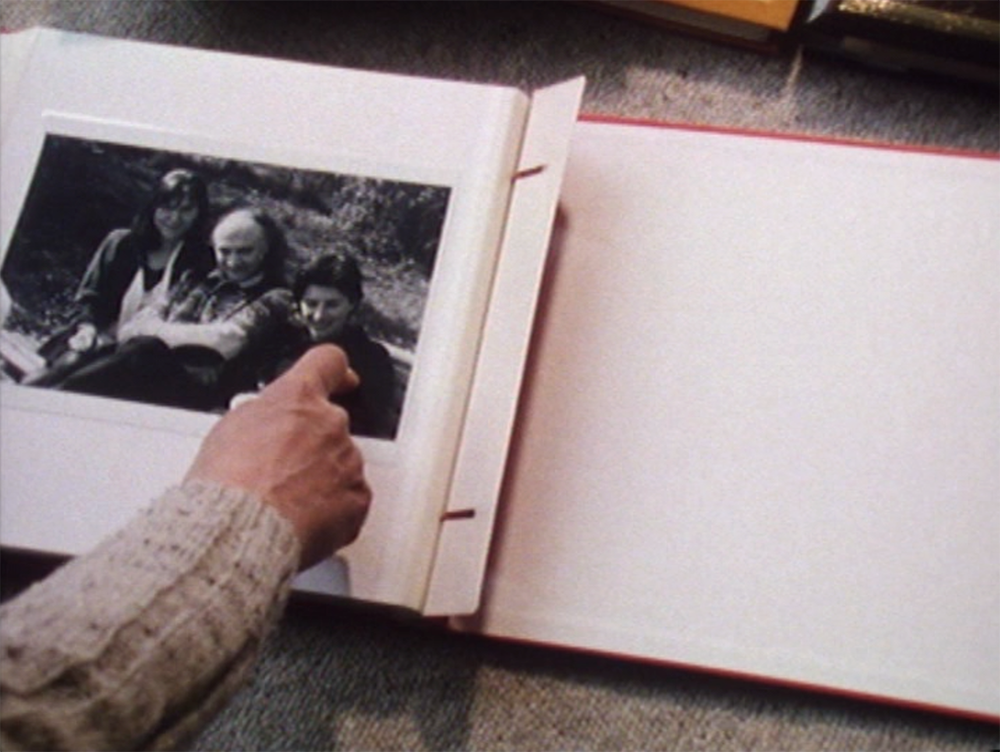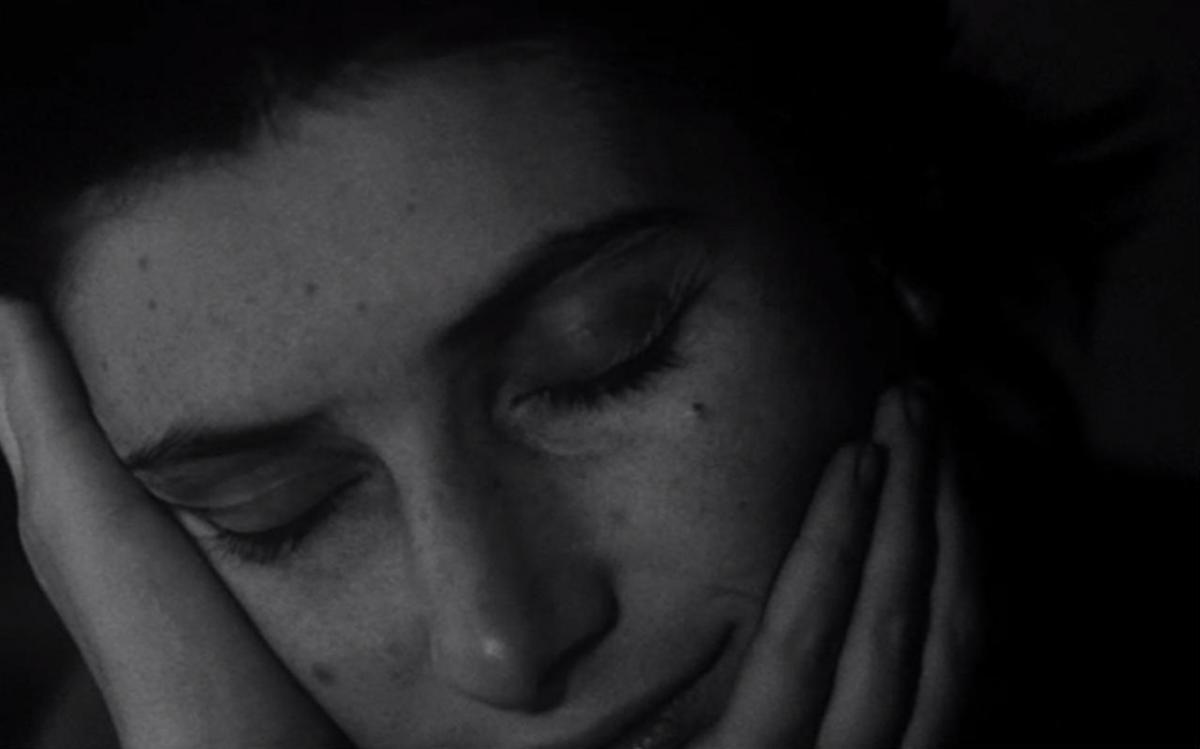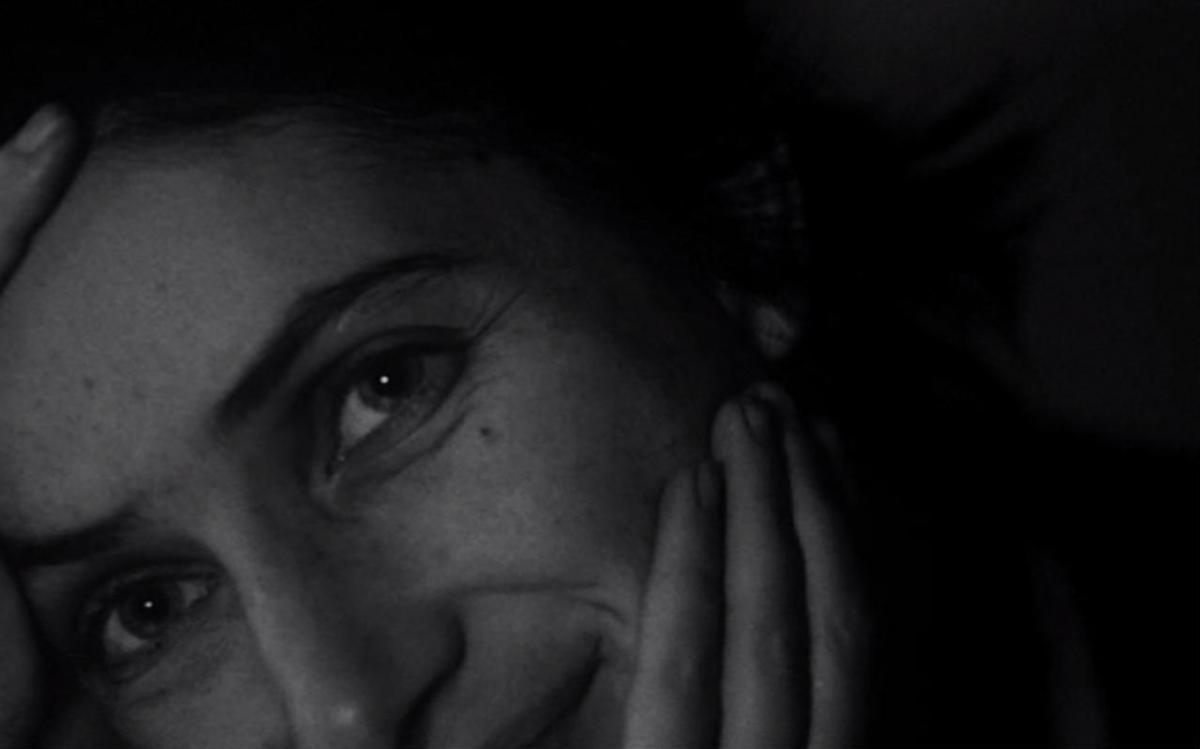In Memory of Chantal Akerman
On 6 June 2020, Chantal Akerman would have turned 70. In memory of the Belgian filmmaker, CINEMATEK (the Belgian film archive) shares Family Business (1984), a rare short film by Akerman about filmmaking, financing, acting, and why all of these things are, at heart, totally absurd. Made while Akerman was in the United States writing the script for Golden Eighties (1986), this Chaplinesque picaresque details the filmmaker’s trip to Los Angeles in search of a long-lost rich uncle, whom she hopes might be able to produce her films. The short film will be available on Facebook, YouTube and Instagram, from 10am CET on June 6 until 5pm the day after. CINEMATEK is also preparing a summer issue of their quarterly magazine in which, for the first time, they will not be announcing a film programme, but among other things a tribute to Chantal Akerman is included. You can find more information on this “historic issue” here.
More information on the work of Chantal Akerman can be found on the website of the the Chantal Akerman Foundation. Launched in 2017, the website is a work in progress that’s being developed in collaboration with CINEMATEK, an archive of everything concerning the filmmaker, including where to find and how to be able to exhibit, screen, read or publish all Akerman’s works. It aims at becoming the reference and the key resource for all those who study, research, love or want to discover Akerman’s oeuvre. Visitors are able to follow CINEMATEK’s ongoing efforts to collect, conserve and restore all of her works. Most interestingly, one section of the website keeps on making available some highlights from the paper and photographic archives of Chantal Akerman and Paradise Films that are conserved at CINEMATEK and are currently being catalogued, organized and digitized.
Last Monday, Eye Filmmuseum in Amsterdam reopened with a solo exhibition of the installation work of Akerman. She was one of the first film directors who made the switch to visual art. Midway through the 1990s she discovered the possibilities of the art gallery. In 1995, she created a large spatial installation on 25 monitors based on D’Est (1993), a film she originally made as a documentary. This marked the start of her ‘second career’ within the world of visual art. You can find more information on the exhibition in our agenda. The exhibition is accompanied by a richly illustrated publication with texts by Akerman herself, supplemented with essays by Cyril Béghin, Dana Linssen and Roos van der Lint.

Over the past few years, Sabzian has devoted regular attention to the distinctly singular oeuvre of Chantal Akerman. Below you will find an overview of the texts by and on Akerman that are available on Sabzian, categorized by language.
Texts on Sabzian in English on Chantal Akerman
‘23, quai du Commerce, Brussels. On Chantal Akerman’ (1975) by Dirk Lauwaert
“It is not a complicated or difficult film, rather a very simple and clean one. But it is not a natural, spontaneous film. The clarity and legibility of Jeanne Dielman is the result of self-discipline. In our culture clarity needs to be pragmatic-efficient, an argument needs to have the form of a road, including road signs. Force and energy need to be channelled into activist trajectories time and again, need to be labelled with a name and an address. Akerman slipped by and through all of that.”
‘A Fetishistic Camera. On the Films of Chantal Akerman’ (1982) by Daniël Robberechts
“I come to perceive the screen as a wall (which it is) in front of which I myself have to assume an attitude and a position. I come to find myself on my own and in my own time. I have to determine my own shot, my way of watching and my use of time. If need be I can exercise patience and wait for the next sequence (as one ‘waits for a bus’). But such an attitude renounces enjoyment. I can spend this time much better by watching instead of seeing – and I can watch in such a way that I forget that I’m waiting for something (e.g. for a bus).”

Texts on Sabzian in Dutch from and on Chantal Akerman
‘Handelskaai 23, Brussel. Over Chantal Akerman’ (1975) van Dirk Lauwaert
“Het is geen ingewikkelde of moeilijke film, wel een heel eenvoudige en heldere. Maar het is geen natuurlijke, geen spontane film. De duidelijkheid en leesbaarheid van Jeanne Dielman is het resultaat van zelfdiscipline. In onze cultuur moet duidelijkheid pragmatisch-efficiënt zijn, moet een betoog de vorm hebben van een weg, met wegbewijzering. Kracht en energie moeten steeds in activistische banen worden gekanaliseerd, moeten een naam en een adres opgeplakt krijgen. Akerman is daar overal langs en doorheen gegleden.”
‘Een fetisjistische camera. Over de films van Chantal Akerman’ (1982) van Daniël Robberechts
“Ik kom ertoe het scherm waar te nemen als een muur (wat het ook is) waar tegenover ik zelf een houding en een plaats moet innemen. Ik raak op mezelf aangewezen en op mijn eigen tijd. Ik moet zelf mijn opname gaan bepalen, mijn kijkhouding en mijn tijdgebruik. Desnoods kan ik geduld oefenen en op de volgende sequens wachten (zoals men ‘op een autobus wacht’). Maar zulk een houding verzaakt het genot. Ik kan deze tijd dus veel beter gebruiken om te kijken i.p.v. te zien – en ik kan zo kijken dat ik vergeet dat ik ergens op wacht (bvb. op een autobus).”
‘Leren leven, het leven leren. Een inleiding op Chantal Akerman’ (1983) van Eric de Kuyper
“Ergens zegt ze ook ‘il faut mettre en scène la vie’, wat op een dubbele manier begrepen kan worden. Dat je je in de film niet moet laten beetnemen door de spontane registratie en reproduktie van de werkelijkheid. Dat je dus moet ensceneren, vormgeven. Maar ook: dat het leven zoals het is, niet bevredigend is, en dat je het moet proberen te hervormen, te herformuleren. Je moet het leven ensceneren; je moet het leven ensceneren.”
‘Niet-lof (zou ik vandaag zeggen)’ (1995) van Boris Lehman
“Ik had geschreven “in het leven van Jeanne – Jeanne Dielman – is alles tot in het kleinste detail geregeld”. Ik had eraan kunnen toevoegen “klikt alles mooi in elkaar”. Vandaag zou ik het volgende zeggen over de films van Chantal, over haar teksten: “Alles is tot op de laatste komma uitgeschreven.” Akelige precisie en maniakaal gedrag, doorgetrokken tot in de kaders, de camerabewegingen, de toon, het acteursspel... is dat niet wat de originele en moderne schriftuur van Chantal uitmaakte en ook datgene wat de gemiddelde kijker tegenstond, hongeriger als die was naar vlees en emotie dan naar abstractie en onstoffelijke lichamen?”
‘Het vijfentwintigste scherm’ (1995) van Chantal Akerman
“Oude beelden van een uittocht, met bundels stappen in de sneeuw richting een onbekende plaats, gezichten die aarzelen tussen het sterke leven en de mogelijkheid van een dood die toeslaat zonder dat ze iets gevraagd hebben. En het is nog altijd zo.”
‘De dag waarop’ (1997) van Chantal Akerman
“De dag waarop ik heb beslist na te denken over de toekomst van de cinema, heb ik bij mezelf gedacht dat ik die niet zou meemaken. Ik heb me afgevraagd of de toekomst altijd voor ons ligt. Toen heb ik voor mij uit gekeken, vervolgens heb ik mij omgedraaid.”
‘Temps mort. Eric de Kuyper over Chantal Akerman’ (2015) van Annie van den Oever
[Dit] gesprek tussen Eric de Kuyper en Annie van den Over herbekijkt enkele thema’s uit het werk van Akerman vanuit hun vriendschapsband: haar vroege debuut op achttienjarige leeftijd, haar plotse bekendheid op haar vijfentwintigste, haar buitengewone schrijftalent, haar luchtigheid, haar minimalisme, haar sterke stem, haar gebruik van temps mort oftewel dode tijd, haar interesse voor Proust, haar feminisme, haar judaïsme.
‘Prisma #11’ (2017) van Elias Grootaers
“Alle films van Akerman gaan over tussenruimtes, de ruimte tussen leven en dood, openbaar en particulier, een geschiedenis die ophield te bestaan en een geschiedenis die zich nog niet heeft aangediend, die te laat is en op zich laat wachten, de ruimte tussen twee landen.”
“Proust herschrijven. Werken aan La captive met Chantal Akerman: een gesprek” (2018) van Eric de Kuyper en Annie van den Oever
De Belgische regisseur, schrijver en filmtheoreticus Eric de Kuyper ontmoette Chantal Akerman voor het eerst in zijn hoedanigheid van filmtheoreticus in 1968. Niet alleen werden ze vrienden en bleven ze dat voor het grootste deel van hun leven, ze werkten ook nauw samen aan verschillende projecten, waaronder La captive (2000). Eric de Kuyper: “Toen ze me in 1999 vroeg om aan een Proustbewerking te werken, was ik verrast. Ik had het net herlezen, met veel meer genoegen dan de eerste keer, en ik was benieuwd om te achterhalen hoe ze deze complexe en labyrintische roman zou aanpakken.”

Texts on Sabzian in French by and on Chantal Akerman
‘Non-éloge (aujourd’hui je dirais)’ (1995) par Boris Lehman
« J’avais écrit : « tout est réglé dans la vie de Jeanne – Jeanne Dielman – jusque dans le moindre détail ». J’aurais pu ajouter : « comme sur du papier à musique ». Aujourd’hui, je dirais cela des films de Chantal, je dirais cela de ses textes : « tout est écrit jusqu’à la moindre virgule ». Méticulosité, maniaquerie, traduites jusque dans les cadres, les mouvements de caméra, le ton, le jeu des comédiens … n’est-ce pas cela qui faisait l’écriture originale et moderne de Chantal et qui rebutait justement le spectateur moyen, plus avide de chair et d’émotion que d’abstraction et de corps désincarnés ? »
‘Le vingt-cinquième écran’ (1995) par Chantal Akerman
« De vieilles images d’évacuation, de marches dans la neige avec des paquets vers un lieu inconnu, de visages qui vacillent entre la vie forte et la possibilité d’une mort qui viendrait les frapper sans qu’ils aient rien demandé. Et c’est toujours comme ça. »
‘Une caméra fétichiste. Sur les films de Chantal Akerman’ (1982) par Daniël Robberechts
« J’arrive à percevoir l’écran comme un mur (ce qu’il est) envers lequel je dois moi-même prendre position, me situer. Je suis réduit à moi-même et à mon propre temps. J’ai à déterminer moi-même ma prise de vue, mon attitude de vision, mon emploi du temps. Je puis à la rigueur m’armer de patience et me mettre à attendre le plan suivant (comme « on attend l’autobus »). Mais cela n’est pas une attitude de plaisir. Je fais mieux d’employer ce temps pour regarder au lieu de voir – et je puis regarder de sorte à oublier que j’attends quelque chose (par ex. un autobus). »

For the past six years, Sabzian has curated an agenda to provide our readers in Belgium and surroundings with a roadmap through the diverse range of local cinema listings, supporting a network of events, screenings and exhibitions that share and reveal the potential outlines of a cinephile fabric. For each film, a Film Page is created that unites information on the film with quotes from various sources, fragments of essays, reviews or interviews, woven together like a patchwork, hopefully inciting you to read further. In this way, a vast collection has grown, not only serving as a guide for screenings but also as an imaginary film library, encyclopaedically incomplete but resulting from subjective aspirations. Aside from screenings, those Film Pages are accessible on Sabzian through the director-tags, also available on the Search-page in alphabetical order. Below you will find an overview of all available Film Pages of Akerman’s films, also accessible via her Director Page.
La chambre (1972)
Hôtel Monterey (1972)
Jeanne Dielman, 23, quai du commerce, 1080 Bruxelles (1975)
Je, tu, il, elle (1976)
News from Home (1977)
Les rendez-vous d’Anna (1978)
Toute une nuit (1982)
Les années 80 (1983)
J’ai faim, j’ai froid (1984)
Golden Eighties (1986)
Histoires d’Amérique: Food, Family and Philosophy (1989)
D’Est (1993)
Portrait d’une jeune fille de la fin des années 60 à Bruxelles (1994)
No Home Movie (2015)
Excerpt from Chantal Akerman par Chantal Akerman (Chantal Akerman, 1996)
When asked to provide a documentary for the Cinéastes de notre temps television series, Akerman half seriously suggested she do an autobiography on herself, in part because other directors had adequately covered the subjects for the series that most interested her. Caught in her own trap, she created this precious and intimate autoportrait. Turning the camera on herself in her sparse apartment, Akerman reads from an engaging and revealing text, while a montage of 15 of her films speaks volumes about herself, her artistic trajectory, and her singular vision of the world. “She started at the age of 18. Unabashed. Not realizing how hard it was for a girl in Brussels in a family which didn't care about film. They weren’t interested in it, but Chantal was interested in them. And if they saw nothing in their past worth talking about, it was that “nothing” which interested Chantal.”

